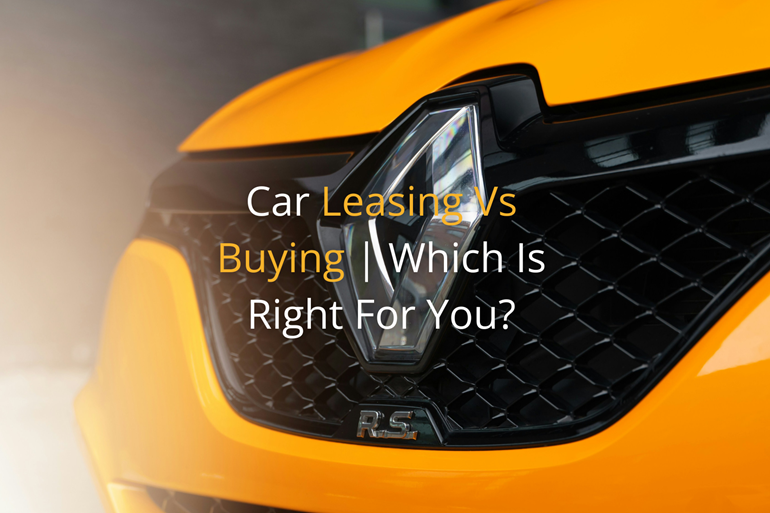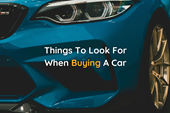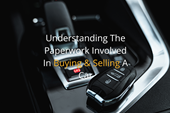
Car Leasing Vs Buying | Which Is Right For You?
Not Sure Whether To Lease Or Buy Outright? We’ve Got You Covered
Quick Links
1 Minute Read: Lease or Buy?
Deciding whether to lease or buy a car comes down to lifestyle, budget, and long-term goals. Leasing usually means lower upfront costs, smaller monthly payments, and the chance to drive a new model every few years without worrying about resale. The trade-off? You’ll face mileage limits, wear-and-tear charges, and no ownership at the end of the term.
Buying, on the other hand, costs more initially and monthly, but it’s an investment. Once the finance is cleared, the car is yours to keep, modify, or sell whenever you choose, with no ongoing payments or restrictions.
Bottom line: Leasing is best for drivers who want convenience and new models on rotation. Buying is better for those seeking long-term value, ownership, and freedom.
Introduction
When it’s time to get a new car, one of the biggest decisions you’ll face is whether to lease or buy. Both options have their perks and drawbacks, and what works best for you will depend on your budget, lifestyle, and driving habits.
Here, we’re comparing the two, so you can make an informed decision.
First, let’s cover some of the basics.
Does A Lease Car Include Everything
It’s a common misconception that leasing a car includes everything you need, and that you can simply drive it away from the dealership.
Whilst leasing is handy and does remove some of the legwork for you, there are some elements of car ownership that you’re still responsible for.
Firstly, depending on how long you lease the car for, you’ll still be responsible for servicing, maintenance and MOTs (typically on the third year of the car being registered), unless you’ve included servicing and other types of cover in your package.
Secondly, one that catches many motorists out is that you do need to insure the car privately. Lease cars do not include motor insurance (unless your deal is extremely unconventional). Don’t assume yours does; otherwise, you could be committing an offence when you drive.
Car Leasing Vs Buying | Which Option Is Right For You?
What’s the Difference Between Leasing and Buying?
Before we get into the nitty-gritty, let’s clarify what each option actually means.
- Leasing: You essentially ‘rent’ the car for a fixed period, usually between 2-4 years. You make monthly payments and return the vehicle at the end of the term (unless you opt for a lease with a purchase option).
- Buying: You either pay for the car outright or finance it with a loan. Once the loan is paid off, the car is yours to keep for as long as you like.
Now that we've got that straight, let’s compare them side by side.
Upfront Costs
If you don’t want to fork out a large lump sum, leasing is often the more attractive option.
Lease agreements usually require a smaller initial payment compared to buying, which often requires a hefty deposit (especially if you're financing through a loan).
However, if you’re planning to keep the car for the long haul, buying will probably save you money in the long run.
Monthly Payments
Leasing generally offers lower monthly payments than buying because you’re only covering the car’s depreciation rather than its full value.
This makes leasing an appealing option for those who want to drive a newer model without breaking the bank each month. Buying, on the other hand, means higher payments, but at least you’re working towards full ownership.
Read More: PCP is another popular way to purchase a car, combining lower repayments with the option to own the car outright. If you’d like to learn more, take a look at our guide: Lease Vs PCP | Which Is Better?
Ownership and Equity
This is where buying wins hands down.
When you buy a car, it’s yours. You can drive it for as many years as you like, rack up the mileage, and modify it as you please. Leasing means you’ll always have a monthly payment if you continue leasing new vehicles, and you won’t have anything to show for it at the end of the contract.
Mileage Restrictions
One of the biggest downsides to leasing is the mileage cap. Most lease agreements come with an annual mileage limit (between 5,000 and 30,000 miles).
Exceed that limit, and you’ll be hit with costly excess mileage fees. If you’re a high-mileage driver, buying is probably the better option to avoid unexpected charges.
Wear and Tear Charges
Leased vehicles must be returned in good condition, which means you could face penalties for excessive wear and tear. Scratches, dents, or stained seats? That’s going to cost you.
When you own a car, cosmetic issues won’t result in extra fees (unless you plan to resell and want to maintain its value).
Flexibility
Leasing locks you into a contract for a set period, and breaking it early usually comes with hefty penalties. Buying, however, gives you the flexibility to sell or trade in your car whenever you choose.
If you like the idea of driving the latest models every few years, leasing may suit you. But if you prefer long-term stability, buying is the way to go.
Resale Value
When you buy a car, its resale value depends on depreciation.
Some brands hold their value better than others, which can make selling or trading in a smarter financial move. Leasing eliminates the hassle of resale, as you simply return the car at the end of the contract.
Read More: If you do own your car outright, when it comes to selling, here’s How To Sell Your Used Car.
Customisation
Want to add a spoiler, upgrade the sound system, or tint the windows? If you own the car, go for it. Lease agreements, however, typically prohibit modifications, so what you see is what you get.
Tax and Insurance Considerations
In some cases, leasing can offer tax advantages, particularly for business owners who can claim lease payments as expenses.
However, insurance costs can sometimes be higher on a leased vehicle because the leasing company may require higher coverage levels.
Remember, no matter whether you own or lease your car, any settlement figure you receive following a total loss will usually be for the current market value, not the amount you paid or owe. Gap insurance and lease gap insurance can help make up the difference if the worst happens.
So, Which Option is Right for You?
Leasing could be right for you if:
- You like driving a brand-new car every few years
- You want lower monthly payments
- You don’t want the hassle of selling a car later
- You drive limited miles per year
However, buying is likely the smarter move if:
- You want to own the car outright
- You prefer long-term financial benefits
- You drive a lot of miles annually
- You want the freedom to customise your car
Our Final Word
At the end of the day, the best choice depends on your personal needs and financial situation.
Leasing is ideal for those who enjoy new cars with lower payments and don’t mind mileage restrictions, while buying is the better long-term investment for those who want full ownership and no ongoing payments after the loan is cleared.
Take the time to evaluate your driving habits, budget, and long-term plans before making your decision!
No matter which you choose, don’t forget to drive with ultimate peace of mind. Get a Gap Insurance quote today.
Pin It!













